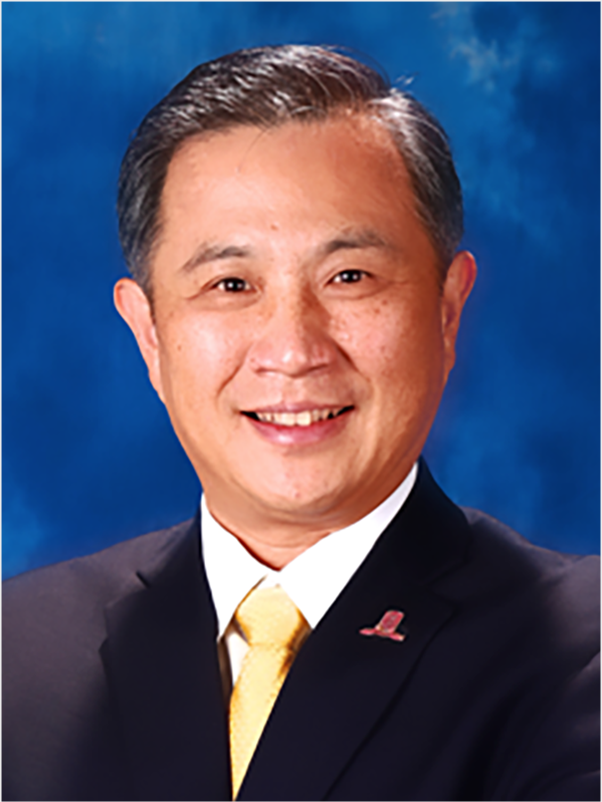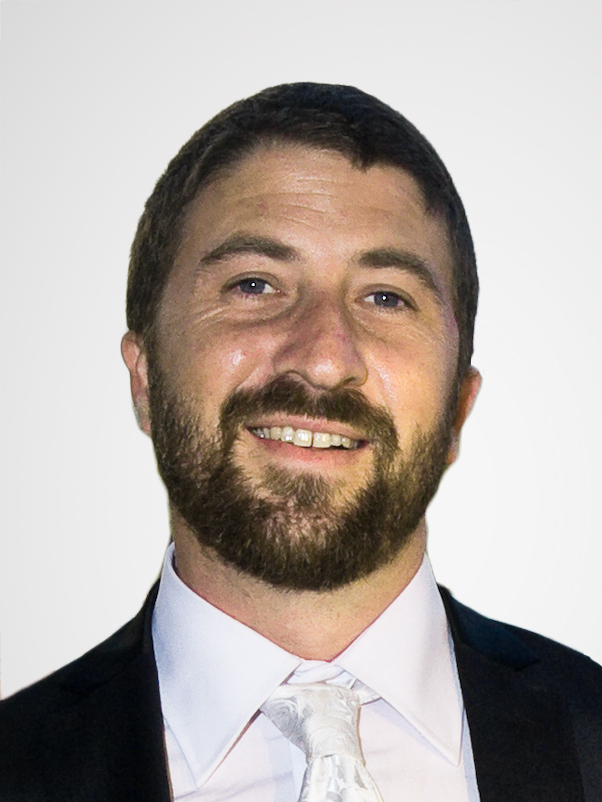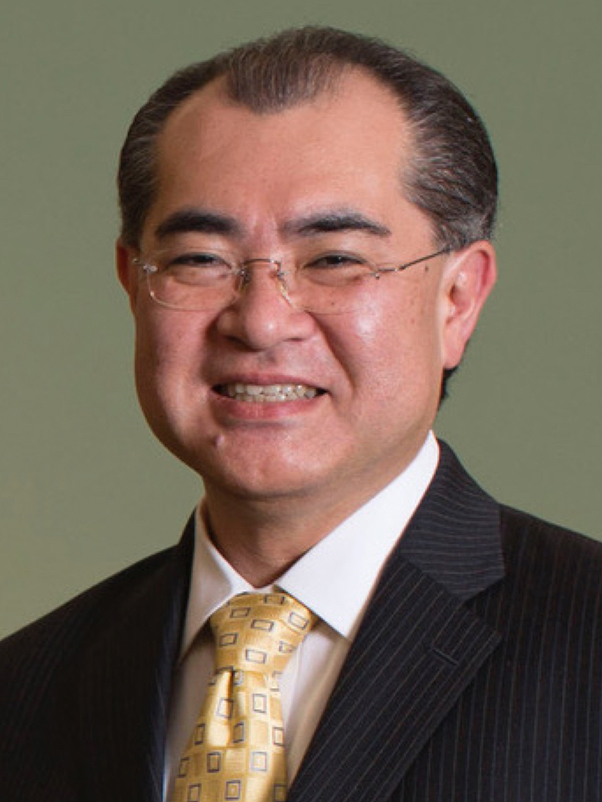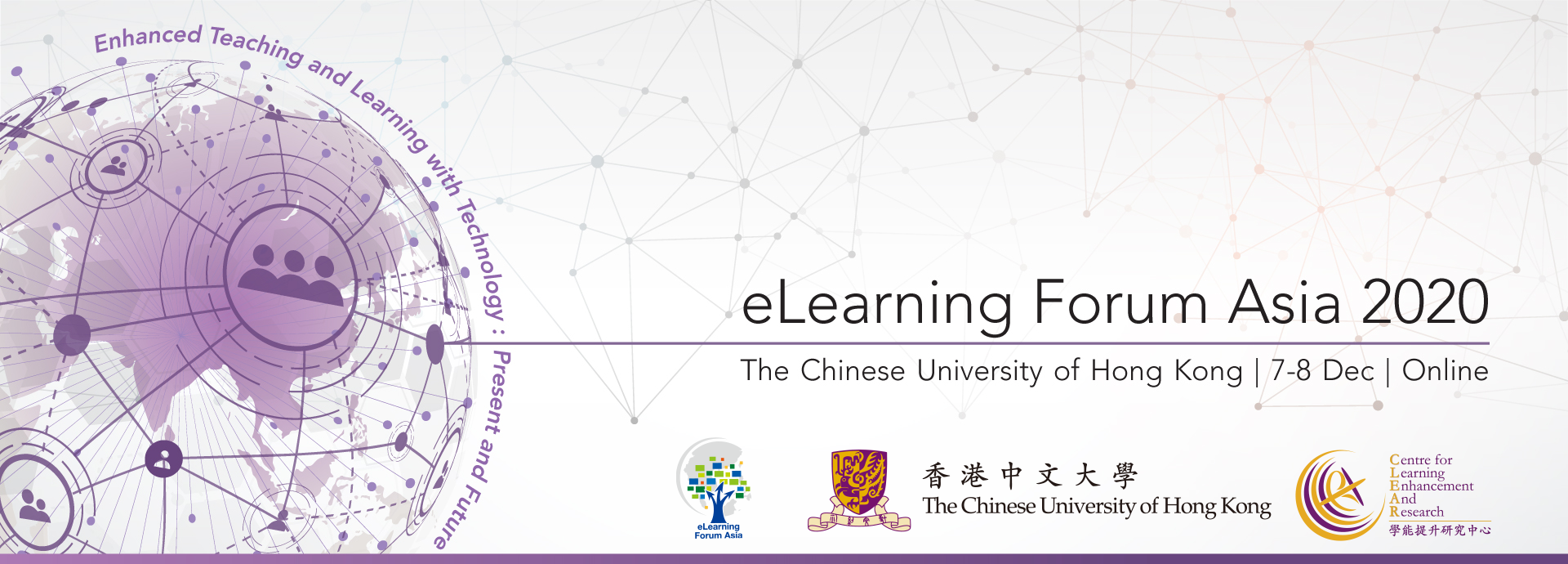Speakers
Home / Programme / Speakers
Following is the list of confirmed speakers for eLearning Forum Asia 2020 (eLFA2020).

Chairman & Professor, Department of Computer Science & Engineering
Director, Centre for eLearning Innovation and Technology
The Chinese University of Hong Kong
Title: Innovative Education with Artificial Intelligence
Traditional education, which is characterized by the use of cookie-cutter approaches and the lack of experiential learning, is inadequate in meeting today’s educational needs. Students cannot receive personalized education that suits their interests and find it difficult to relate theoretical knowledge to practical situations. Moreover, it is also difficult for teachers to detect students’ weaknesses and provide timely assistance in a large classroom setting. In this keynote, I plan to share some recent developments and successful cases of using Artificial Intelligence (AI) in education. They include the use of learning analytics, recommender systems, intelligent tutoring systems, and extended reality (XR), to overcome problematic issues in content creation, pedagogical development, and assessment. Overall, I intend to illustrate how AI enhances teaching and learning effectiveness by creating personalized learning paths, offering immersive learning experiences, and enabling teachers to identify at-risk students more effectively.

Professor of Learner Centred Design
UCL Knowledge Lab, UCL Institute of Education
University College London
Rosemary (Rose) Luckin is Professor of Learner Centred Design at UCL Knowledge Lab. Rose’s research involves the design and evaluation of educational technology using theories from the learning sciences and techniques from Artificial Intelligence. She has a particular interest in how AI techniques can be used to enable more effective, continuous, formative assessment processes and tools. Her 2018 book: Machine Learning and Human Intelligence: The Future of Education for the 21st Century describes how we can best benefit from using AI to support teaching and learning, and how the prevalence of AI in our future means that we need to revise what and how we teach and learn now. She has also published numerous academic articles, authored two monographs and edited two paper collections.
Rose is also Director of EDUCATE: a London hub for Educational Technology StartUps, researchers and educators to work together on the development of evidence-informed Educational Technology; Specialist Adviser to the UK House of Commons Education Select Committee for their inquiry into the Fourth Industrial Revolution, Co-founder of the Institute for Ethical AI in Education; President-elect of the International Society for AI in Education; a member of the UK Office for Students Horizon Scanning panel, adviser to the AI and Robotics panel of the Topol review into the future of the NHS workforce; a member of the European AI Alliance, holder of an International Franqui Chair at KU Leuven. Rose was named as one of the 20 most influential people in Education on the Seldon List 2017.
Title: Enhancing Teaching and Learning with AI Technology and Human Intelligence
COVID-19 has precipitated a major experiment for education systems across the world. This experiment may change the way we teach and learn forever, but how can we enhance teaching and learning through technology and what role can and should AI play in this transformation?
In this talk, I will discuss the role of AI in education and the way that it can help teachers and learners in a COVID-19 compliant education system. I will discuss the current stage of AI’s application in education and the manner in which AI has supported teachers and learners during the current pandemic restrictions. I will also look towards the future and consider the way in which AI could be used to support a COVID-compliant transformation in education. A transformation that will enable all learners to achieve their potential. Throughout the talk I will use examples from different AI systems to illustrate what is happening now and what could happen in the future. I will also suggest some useful ways in which education can become ‘AI Ready’.

Deputy Director (Digital Learning)
Institute for Teaching and Learning Innovation
The University of Queensland
Greg is the Deputy Director, Digital Learning at the University of Queensland (UQ), Australia. He leads the university digital learning strategy ensuring that the overall experience for staff and students aligns with UQ’s distinctive approach to active learning. After completing his undergraduate degree at UQ, Greg left Australia and worked in several education and technology roles in Japan. He returned to Australia five years later with a renewed interest in higher education and commenced work at Queensland University of Technology. He holds a PhD in higher education innovation and an Executive MBA.
Greg has held several professional and academic roles in his twenty years at the intersection of technology and education. He has lived and worked in Brisbane, Osaka and Barcelona and developed a keen interest in how digital technologies support cross-cultural competencies. He has taught and researched on Educational Technology, Indigenous perspectives on Education and Higher Education policy. Greg is currently exploring ways in which higher education strategy and administration can better link to industry and community practices. Greg remains a long-standing fan of teaching in higher education, learning design and educational technology.
Title: Toward Digital Learning Strategic Agility
There are many Digital Learning Transformation projects playing out across Higher Education Institutions, projects that seek to strike a balance between local disciplinary needs and central administrative agendas to standardise and achieve economies of scale. Recently, these projects have received more traction and visibility due to the COVID-19 crisis. The reliance and agility of these projects can come down to how well key agents of change and stakeholders have been able to contend with uncertain revenue streams, new and unexpected capabilities and working with a student cohort who never ‘opted in’ to online learning. For many staff involved in Digital Learning strategy, this is an opportunity for critical reflection and a chance to consider new strategic models and ways of thinking.
Prior to COVID-19, UQ adopted an ambitious plan to renew its Digital Learning capabilities, a roadmap to improve existing practices, to better discover and select the emerging technologies to innovate and experiment with a commitment to explore improved parity with platforms in use throughout industry and the community. Post COVID-19, UQ has new insights and capabilities that will shape our student experience and our catalogue of credentials and experiences in years to come.
In this presentation, the UQ Digital Learning Capability Roadmap will be presented in order to foreground the lessons learned and affirmed by the COVID-19 crisis. Sweet spots and pain points will be identified, as will the conversations and curiosities about new digital learning practices. New principles and heuristics that may inform future approaches to Digital Learning strategy work will also be presented. Finally, an argument to ‘meet complexity with complexity’, inspired by adaptive leadership tactics, to digital learning strategy will be put forward.

Director & Professor, Center for the Promotion of Excellence in Higher Education
Professor, Graduate School of Education
Kyoto University
Toru Iiyoshi is Director and a professor at the Center for the Promotion of Excellence in Higher Education of Kyoto University. He is Executive Director of KyotoUx, the institutional MOOC (Massive Open Online Courses) initiative in partnership with edX. He also served as Deputy Executive Vice President for Education (2015-2020).
Dr. Iiyoshi works with various international and national initiatives, projects, and organizations in an advisory role to provide vision and leadership in innovative educational development, open education, and future higher education systems. Previously, he was a senior scholar and Director of the Knowledge Media Laboratory at the Carnegie Foundation for the Advancement of Teaching, and Senior Strategist in the Office of Educational Innovation and Technology at Massachusetts Institute of Technology.
Dr. Iiyoshi has served as a member of the World Economic Forum’s Global Agenda Council on Technology and Education as well as a visiting professor of Graduate School of Interdisciplinary Information Studies at the University of Tokyo. He is a co-editor of the Carnegie Foundation book, “Opening Up Education: The Collective Advancement of Education through Open Technology, Open Content, and Open Knowledge” (MIT Press, 2008).
Title: Technology-Enhanced Higher Education: Opportunities and Challenges Beyond 2020
Over the last two decades, the emerging Internet-enabled open education movement has been transforming the landscape of learning and teaching in higher education both globally and locally. By making educational tools, resources, and knowledge freely and openly accessible to everybody around the world, the movement is beginning to radically change the cultures, values, systems, ecology, and economics of higher education. In short, open education is enabling all of us to learn anything, anytime, anywhere.
In addition to an abundance of these openly shared educational resources as well as the ongoing open innovation movement, the emerging applications of AI, VR, and AR in education provide us with enormous opportunities and possibilities to better support more personalized and collaborative lifelong learning, especially given our rapidly increasing ability to analyze and utilize big data.
Furthermore, some evolving pedagogical approaches, such as gamification, project-based learning, and peer instruction, are helping promote and accelerate the acquisition of critical skills and knowledge both for individual and social needs.
This plenary talk addresses the following topics:
- Overviewing how the radical transformation has been driven by emerging educational innovations, methods, systems, and cultures
- Exploring educational ecosystems that enable iGen and the rest of us to support and sustain more personalized, flexible, and on-demand lifelong learning
- Identifying some of the critical elements and strategies for reinventing post-COVID-19 higher education

Vice Provost (Teaching Innovation & Quality)
National University of Singapore
Associate Professor Erle CH Lim graduated from the National University of Singapore in 1990, and obtained his Masters in Medicine (Internal Medicine) from the same university in 1997. In 2009, he was appointed as a Fellow to the Royal College of Physicians, Glasgow. He trained in Neurology at the Singapore General Hospital, after which he completed his training in Movement Disorders at the Mount Sinai School of Medicine, New York, under Professors C Warren Olanow and Mitchell F Brin. He is currently Senior Consultant Neurologist at the National University Hospital and was Assistant Dean of Education at the Yong Loo Lin School of Medicine, NUS from 2007 to 2010.
His subspecialty interest is in Movement disorders, focusing on the clinical applications of Botulinum toxin, Parkinson’s disease, Spasticity and Dystonia. He lectures on Neurology, Movement Disorders and Education (Medical Education and Technology in Education) regionally and internationally, and teaches techniques of Botulinum toxin injection using electromyographic guidance to neurologists and physiatrists, regionally and internationally.
He has published over 100 papers in international journals, covering topics in general neurology, movement disorders, botulinum toxin, general medicine and medical education, and is a reviewer for international journals in Medicine, Neurology, Movement disorders and Medical Education. He sits on the specialist training committee in Neurology and the Neurology MCQ Committee of the Royal College of Physicians, London.
In 2006 and 2007, he was awarded both the faculty teaching excellence award and the university’s annual excellence teaching award. In 2007, he was awarded the university’s outstanding educator award.
He was Chairman of the Executive Council of the NUS Teaching Academy, was Associate Provost (Undergraduate Education) and was appointed Vice Provost (Teaching Innovation & Quality) at the National University of Singapore from 1 April 2020.
Title: COVID-19 and other Disruptors: Challenges and Opportunities for E-Learning
The last 2 years have seen many disruptions to education. COVID-19, in particular, has posed challenges for teachers, students and administrators of educational institutions alike. Whilst it has proven an extinction event for many companies, and indeed, has caused financial difficulties for educational institutions, COVID has also prompted many to examine the role of e-Learning. Yet, online education can be so much more than a default option. Well done, it can be as good as face-to-face teaching, and indeed, can be even better. This talk examines what has been, and can be done, with e-Learning.


